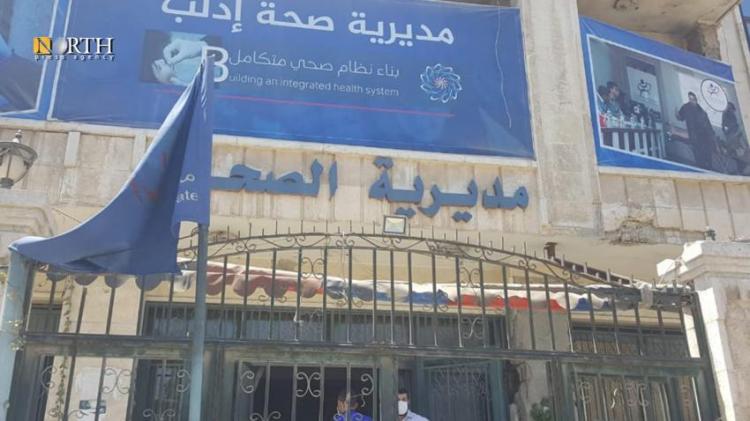IDLIB, Syria (North Press) – Osama al-Sabbagh, a graduate of the Teacher Class at the Faculty of Education, sits and sighs while seeing one of his acquaintances, who does not have any degree, employed in a civil society organization in Idlib, northwestern Syria. Meanwhile, al-Sabbagh works in the exhausting and laborious concrete field to secure a living.
The phenomenon of employment through favoritism in the Syrian opposition institutions in the country’s north, which is controlled by Turkish-backed armed opposition groups, has increased, and this is accompanied by an increase in the demand for job opportunities after the increase in the number of the unemployed, especially those with degrees.
Al-Sabbagh said that he visited all the organizations and employment services in search for a job after he left his job with the Syrian government due to the difficulty of going to the areas of its control and the possibility of being arrested at any military checkpoint.
“Going to Syrian government areas receive my salary is a risk, because one does not know when he will be arrested. They arrested my colleague at one of the checkpoints, which prompted me to leave the job.”
“Most of the organizations’ employees are the relatives and acquaintances of their managers, and among them are people who cannot read or write,” said Sumaya al-Arafat, a pharmacy graduate who did not get a job despite her long studies.
“More than 50% of the organizations’ employees north Syria do not have the lowest educational certificates or competencies that qualify them for the work assigned to them in these offices. The organizations and bodies follow the Syrian government’s approach regarding administrative and job corruption through bribery and intermediation.”
Employment via favoritism in northwestern Syria has reached the medical field, too, where the positions of nurses and other professionals are assigned according to the level of kinship and mediation with managers and officials.
“I searched in many hospitals for a job opportunity, but without success. The responses were limited to the absence of a vacancy, although most nurses in hospitals learned from nursing courses that do not exceed a month or few months,” Muhannad al-Ghalib, a Nursing Institute graduate, told North Press.
Al-Ghalib warned against the danger of assigning jobs according to favoritism, especially in the medical field, because this may harm the injured and the sick.
“Favoritism has spread in medical organizations in the Syrian north and their affiliated institutions, despite the sensitivity of this sector and its need for qualifications, especially in light of the war and destruction that the country is experiencing,” Dr. Wael al-Ahmad, a doctor in one of the hospitals in Idlib, told North Press.
“Many organizations that operate inside Syria rely on favoritism to appoint many of their crew members because of the kinship of the officials working in them.”
Engineer Jawad al-Ezzo told North Press that favoritism, which has exhausted the Syrian people for forty years, was attributed to the Syrian government. Now that the regime is gone from these regions, al-Ezzo wonders, why do the people still suffer from these practices?
“The current state of chaos gives the opportunity for climbers and opportunists to pursue their corruption,” he added.
Reporting by Razan al-Sayyed, editing by Lucas Chapman

